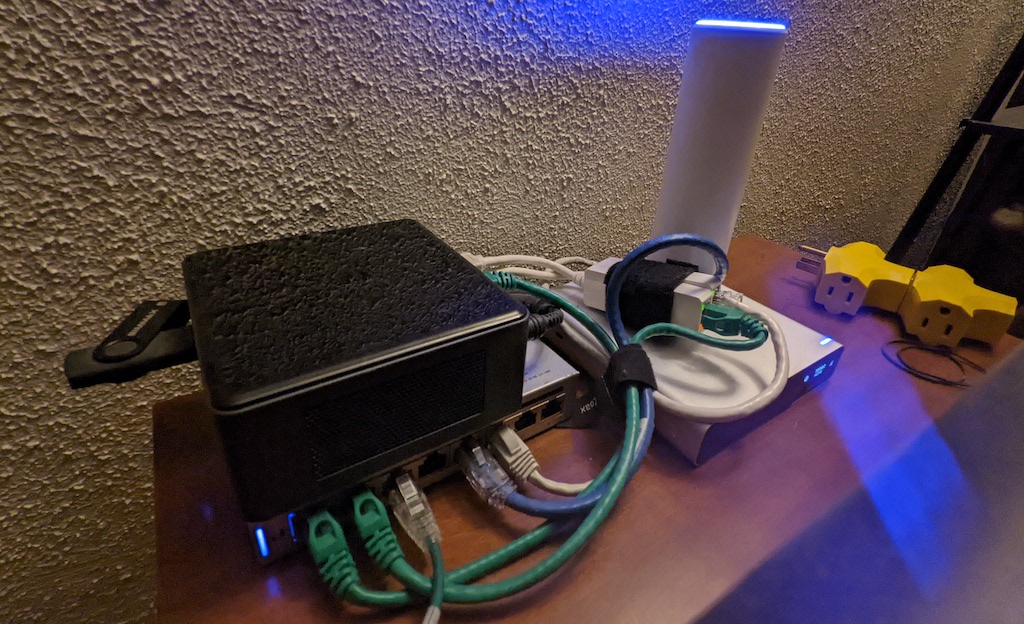(#6) Tue Feb 2nd, 2022 - Labbing
February 2, 2022•571 words
The home lab. Those not in the tech industry may know of it as a workshop, a studio, or even a nook. One thing is certain despite the name: creators and thinkers do their best work in their happy space. As an avid technologist and only an aspiring DIY-er, my definition falls more towards the description of a "lab". In practice this isn't anything fancy like you'd see in a mad scientist's basement or garage. For me, an unassuming cluster of tiny computers and networking gear tucked away quietly in the corner of my house.
Apart from the datacenters I manage - chugging power, fans spinning and screaming wildly - the technology I surround myself with at home is far from the cacophony of compute I've exposed my ears to for the past decade. It's comprised of Intel NUCs and other small network gear that brandish silent fans, or no fans at all. As both a professional and enthusiast, I've always enjoyed keeping up with the latest technology and trends in the fields of networking and software engineering. As a business owner, I'm burdened to fully understand the technology I implement to serve customers. I'm sure you can see the position I'm in. Time to really learn some networking protocols.
Gone are my days of putting around with webservers and databases. Old friends of mine would speak of the good ol' days of ancient basement servers crawling along, yielding only handfuls of compute power. It's the roaring 20s now, my time is spent simulating global networking technologies like BGP and anycast networking across dozens of virtual hosts and networks. The fun comes naturally even though the knowledge garnered has immense value to my career. I guess I'm lucky in that sense.

To achieve this I didn't need to increase the scale of what once was a few early 2000s HP and SuperMicro rack servers that consumed thousands of watts. In fact, it's quite the opposite. Moore's law has really helped us over the past few years. A single Intel NUC now has more compute power by a factor of five than my "lab" had in high school. With modern storage technology, I'm running terabytes of fast storage in less than a cubic foot of space. Virtualizing tens or hundreds of servers is attainable for 100 watts or less. What a time to be alive.
Maybe it helps having friends to lab with, too. It's like a collaborative art studio, or a shared carpenters' workshop. Bouncing ideas and concepts off of like-minded individuals makes not only for great collaboration, but innovation as well. I'm not out here claiming to be innovating anywhere in the spaces I occupy, but it's damned fun to set up a big tunneled mesh between your house and all of your friends so you can run a real BGP network and play with policy routing and ECMP. I'm just now realizing this blog definitely has a target audience and I'm a little sorry if I lost you here. Better start learning, eh?
Find your lab space and refine your skills. If you're lucky enough to truly appreciate the thing you do for a living, I'm sure you've already found it somewhat. If not, keep hunting - you'll discover it soon enough.
If you love what you're doing, you've already succeeded.
- Watsky, Never Let it Die
Live well.